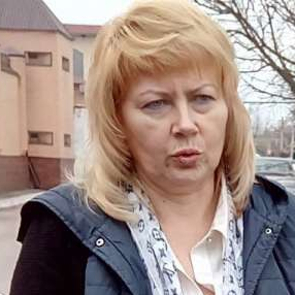Case history: Marina Dubrovina
On 27 May 2016, a Supreme Court judge in the Chechen Republic issued a special ruling which may lead to the disbarment of human rights lawyers Ms Marina Dubrovina and Mr Dokka Itslaev, who were accused of committing actions that “challenge the honour and injure the dignity of an advocate”. On 20 July 2016, the HRDs appealed the ruling of the court.
 Marina Dubrovina is a human rights lawyer who works in close cooperation with the Human Rights Centre “Memorial” in the Krasnodar region. Memorial is a human rights organisation that provides legal assistance to victims of gross human rights violations and is involved in the human rights education, research, and publications. Currently, Marina Dubrovina serves as defence counsels in the case of Ukrainian nationals Mr Nikolai Karpyuk and Mr Stanislav Klykh who have allegedly been involved with “Ukrainian National Assembly-Ukrainian People's Self-Defence (UNA-UNSO)”, an organisation recognised as nationalist in Russia.
Marina Dubrovina is a human rights lawyer who works in close cooperation with the Human Rights Centre “Memorial” in the Krasnodar region. Memorial is a human rights organisation that provides legal assistance to victims of gross human rights violations and is involved in the human rights education, research, and publications. Currently, Marina Dubrovina serves as defence counsels in the case of Ukrainian nationals Mr Nikolai Karpyuk and Mr Stanislav Klykh who have allegedly been involved with “Ukrainian National Assembly-Ukrainian People's Self-Defence (UNA-UNSO)”, an organisation recognised as nationalist in Russia.
On 27 May 2016, a Supreme Court judge in the Chechen Republic issued a special ruling which may lead to the disbarment of human rights lawyers Ms Marina Dubrovina and Mr Dokka Itslaev, who were accused of committing actions that “challenge the honour and injure the dignity of an advocate”.
Download the Urgent Appeal (PDF)
Marina Dubrovina and Dokka Itslaev are human rights lawyers that work in close cooperation with the Human Rights Centre “Memorial” in the Krasnodar region and in the Chechen Republic. Memorial is a human rights organisation that provides legal assistance to victims of gross human rights violations, and is involved in human rights education, research and publications. Currently, Marina Dubrovina and Dokka Itslaev serve as defence counsels in the case of Ukrainian nationals Mr Nikolai Karpyuk and Mr Stanislav Klykh who have allegedly been involved with “Ukrainian National Assembly-Ukrainian People's Self-Defence (UNA-UNSO)”, an organisation recognised in Russia as being nationalist. The defendants were found guilty of taking part in warfare in Grozny in 1994, where they were accused of killing at least 30 Russian servicemen, and were sentenced to 22.5 and 20 years imprisonment respectively. Both men denied their involvement in the conflict in the Chechen Republic and reported that they had been tortured during the investigation.
On 27 May 2016, Mr Vahit Ismayilov, a Supreme Court judge of the Chechen Republic, issued a special ruling suggesting to deprive the human rights defenders of their advocate status, which could affect Marina Dubrovina and Dokka Itslaev's ability to practice criminal law in Russia. The judge's decision was based on the fact that the human rights lawyers had represented the interests of Nikolai Karpyuk and Stanislav Klykh during the court proceedings. The special ruling of the judge will now be sent to the Chambers of Advocates of the Krasnodar region and the Chechen Republic for them to decide on the possible opening of disciplinary proceedings against Marina Dubrovina and Dokka Itslaev. If the human rights defenders are found guilty of committing actions that “challenge the honour and injure the dignity of an advocate”, the Chambers can either issue them with a warning or deprive them of their advocate status.
Front Line Defenders condemns the judicial harassment of Marina Dubrovina and Dokka Itslaev, which it believes is solely motivated by their legitimate and peaceful work as defence counsels and is exclusively aimed at exerting pressure on the human rights lawyers.
Front Line Defenders urges the authorities in Russia to:
1. Revoke the ruling against Marina Dubrovina and Dokka Itslaev and immediately cease all further judicial harassment ofthe human rights defenders, as Front Line Defenders believes that it is solely motivated by their legitimate and peaceful work in defence of human rights in Russia;
2. Guarantee in all circumstances that all human rights defenders in Russia are able to carry out their legitimate human rights activities without fear of reprisals and free of all restrictions.
